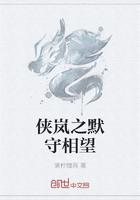Wangjing Hospital is one of about 10 hospitals running special treatment projects for SARS survivors. “Between 40 and 50 people on the list come to my hospital. The patient in the worst condition has osteonecrosis in 29 parts of his body,” said the doctor.
A three-month course of therapy for osteonecrosis costs 10,000 yuan (1,400), while surgery to replace affected joints - anthroplasty - is more than 50,000 yuan, he said.
The families of those killed by SARS each received 5,000 yuan from the Chinese government and, since 2008, the Red Cross Society of China has given survivors with jobs4,000 yuan a year and unemployed survivors 8,000 yuan a year.
“That means we get between 300 and 600 yuan a month,” said Fang. “It barely pays my food bills, not to mention hiring nurses. Also, we have no idea how long these payments will continue.”
After surgery, patients need 24-hour nursing support, while those who end up effectively paralyzed by their condition need full-time care, he said. Although Fang also receives a 2,000-yuan pension each month and the government pays all his medical expenses, the 1,500 yuan a month it would cost to hire a nurse is still more than he can afford.
Fang has started to smoke again, despite quitting for five years. Although he knows it will worsen the fibrosis in his lungs, he said he cannot live without cigarettes.
As he sat in his hospital bed chatting, he continued to smoke as he inserted an oxygen pipe into his nose to help his breathing. A nurse entered the room, checked his temperature and left. “The staff at the hospital have given up trying to get me to stop,” he said. “Smoking is the only thing that helps with my depression. If I didn’t have it, I would go mad waiting for my next bone or joint to break.”
The 58-year-old was diagnosed with depression in 2008. A year later, he slashed his forehead with a broken wine bottle in a pique of despair.
In August 2006, Fang and several friends contacted 110 SARS survivors across Beijing to ask them about their life. They found 88 percent had symptoms of osteonecrosis, 80 percent had lost their jobs because of the symptoms and 74 percent suffered some form of depression. About 60 percent had also gone through a divorce in the past seven years.
“SARS changed these people’s lives,” said Long Mei, 45, Fang’s neighbor and the former wife of Wang Yonghong, who is also on the government’s list of survivors. “The discrimination and pressure of suffering the side effects was more painful than the physical sickness. After my husband recovered from SARS, people didn’t want to even get in an elevator with him. People would recoil from him. SARS scarred people physically and mentally.”
Wang finally gave up taking the elevator and instead climbed 11 flights of stairs to get home, which did more damage to his health, she said.
Long said the pressure on her marriage to Wang eventually became too much to bear and the couple divorced in 2006.
“Endless treatment and surgery ruined our life and marriage,” she said. “Healthypeople, like me, can move on but the victims will never wake up from this nightmare.
Every day is torture and suicide seems the only relief.” She has since remarried but still spends time caring for her ex-husband. “I don’t have the heart to leave him alone. I just couldn’t live the rest of my life under the shadow of SARS,” she said.
In 2004, Long wrote to the central government to draw the government’s attention to SARS survivors but received no response.
Fang and about a dozen others also started a petition that year calling for authorities to give the families of those killed by SARS 300,000 yuan and offer free nursing care to survivors. The Ministry of Health agreed to cover some medical costs in 2005.
“The treatment they receive now is not enough. They need someone who can look after them for the rest of their life,” said Wu Jiaping, whose 25-year-old daughter is a SARS survivor with osteonecrosis. “She can’t even hold or feed her own son. Even I can take good care of my daughter, so what will happen when I die? There needs a government policy that protects survivors.”
As a doctor at Wangjing Hospital, Chen Weiheng was on the frontline of the waragainst SARS in 2003. He said that despite the problems today, the government’s response to the outbreak saved many lives.
“The problems caused by hormone treatment happened all over the world,” hesaid. “We were trying to save lives, so it was more than reasonable to use the treatment.
Compared with people who have suffered side effects from the hormone treatment, the SARS survivors have received better care, faster.” Chen wrote reports warning authorities about the side effects of the therapy in 2003 but “the government had no previous experience in dealing with this problem, so it took months before they could analyze theproblem and launch any solutions”, he said.
The free treatments had worked “pretty well”, he said, adding that he hopes they willcontinue for a long time.
Chen runs a free outpatient service for SARS survivors every Tuesday at Wangjing Hospital. He uses traditional Chinese medicine to reduce the pain of osteonecrosis and delay the need for surgery. “It’s a lifetime sickness. The treatment can’t cure them, it canonly stop their condition from getting worse,” he said. “There are not many of the survivors and their requests do not go too far. I think it’s reasonable to accept their appeals.”
But Fang has given up on his petition. As his body grows weaker, so too does hisspirit.
“I know I have become a burden to the government and society. The feeling of having to keep asking without giving has been killing me for years. But I have no choice. I lost the ability to save myself from this hell,” he said, sobbing.















